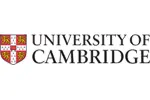

the United Kingdom
University of Cambridge| The award | How you will study | Study duration | Course start | Domestic course fees | International course fees |
|---|---|---|---|---|---|
| BA | Full-time | 3 years | find out | GBP 9000 per year | find out |
Anglo-Saxon, Norse, and Celtic at Cambridge
A voyage of discovery
The history and culture of Anglo-Saxon England, Celtic languages and literature, or Viking exploits – Anglo-Saxon, Norse, and Celtic (ASNC) allows you to explore a range of cultures, and to look at history, language and literature side by side.
ASNC focuses on the history, material culture, languages and literature of the peoples of Britain, Ireland and the Scandinavian world in the earlier Middle Ages.
ASNC students discover medieval history while learning one or more languages and reading great works of literature in the original languages, such as the Old English poem Beowulf, the epic medieval Irish tale Táin Bó Cúailnge (The Cattle Raid of Cooley) and Icelandic sagas. Exactly which areas you study and to what depth is largely up to you, and to support your learning Cambridge has rare and exceptional resources to offer in the University Library, the College libraries, and in the Fitzwilliam and other museums.
What are we looking for?
No previous knowledge of the subject is expected or required; all languages are taught from scratch and we don’t assume that students have studied early medieval history or literature at school. However, we do require passion and commitment, and look for evidence of your general ability in arts and humanities subjects.
Changing course
A few students choose to transfer to another course after Part I. ASNC combines well, for example, with Part II of the History or English degree courses.
After ASNC
This unusual and challenging degree develops your powers of argument and sharpens your powers of analysis. It equips you for a wide range of careers where intellectual and analytical skills are important.
‘Asnac’ (as they like to be called) graduates can be found in a wide range of careers. Some take advantage of the specialist opportunities open to them and do research and teaching in schools and universities, or work in museums and libraries; while many others go into careers including journalism, publishing, banking, law, the Civil Service, industry and business, and even software development.
Contact University of Cambridge to find course entry requirements.
Below are some suggested courses at other providers that you may also be interested in:
International Hospitality and Restaurant Management Bachelor Degree with Honours
Institut Lyfe
Find out moreSoftware Engineering for Embedded Systems MEng
Distance and Independent Studies Center, University of Kaiserslautern-Landau (RPTU), Germany
Find out moreIf you do not meet the entry requirements for this course then consider one of these courses from another institution:
There are 38 other courses listed from University of Cambridge. A selection of these are displayed below:
Find out more about studying in the United Kingdom